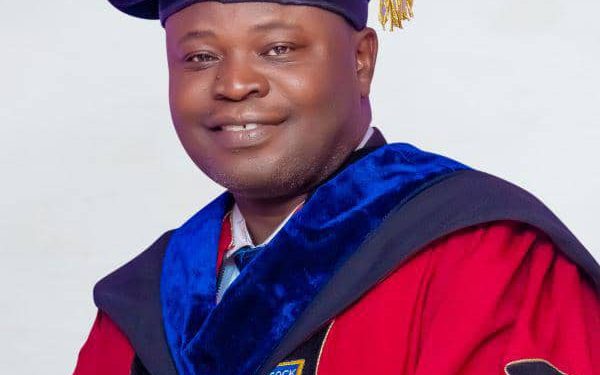Any university or tertiary institution that fails to deploy digital tools for its day-to-day administration and particularly for enhancing data-driven decision making will be left behind in the 21st century era, a human resource expert, Dr Niyi Akomolafe has posited.
Akomolafe, a Deputy Registrar at the Federal University of Agriculture, Abeokuta, FUNAAB, made the assertion while delivering a paper at the Federal College of Agriculture, Moor Plantation, Ibadan, FCAI.
His paper was titled: “Effective Human Resources Management” at an in-house seminar organised for staff of the College.
In attendance was the Provost of the College, Prof. Jonathan Atungwu alongside three other erudite Guest Speakers, Prof. Kolawole Adebayo, a former Deputy Vice-Chancellor, FUNAAB, Dr. Samson Odedina, a former Commissioner for Agriculture in Ogun State and Dr. M.V. David.
Akomolafe harped on the paramountcy of digital accessibility for the management of human resources of any organisation, emphasizing that the 21st century administrator must leverage technological tools to enhance seamless operations in the institution.
His words: “As Administrators, you must keep mastering competences for excellence and building skills in strategic human resources management to aid objectives of your Institution as well as enhance collaborations and helping to streamline communication.
“The 21st Century Administrator must develop capacity and use the capacity to provide excellent services and thereby help to achieve outstanding results.
READ ALSO: Suspected killer of Kogi journalist is dead –Police
“Technological tools will assist greatly in the area of data-driven decision making through comprehensive HR reports that include analytics and metrics.”
To Akomolafe, “the era of key management making decisions based on intuition rather than by evidence, is long gone.”
He pointed out that effective decision making was crucial for resource allocation and strategic planning.
The HR expert also spoke on the need for standardization of templates to ensure consistency which makes it easier to track progress and review past decisions.
Akomolafe also tasked administrators to utilize technology to leverage tools like data visualization platforms to enhance utility of reports to pave way for more digestible information for diverse audiences within the institution.
The Babcock University-trained HR expert also harped on the need for regular review and feedback as establishing a culture of regular review for upgrading effectiveness will bring about sustainable development in the institution.
For the College’s Registry, Akomolafe’s recommendation is that the engine room of the institution’s administration should craft innovative solutions capable of helping staff to move from Procedural Knowledge to Creative Knowledge through continuous self-development and self-investment.
Akomolafe concluded by tasking the institution’s management to double their investment in staff training, especially that of professional administrators, pointing out that “What is neglected could be what will be affected or what is ignored might ultimately influence outcomes.”
He submitted: “The Federal College of Agriculture, Ibadan, must improve the system in terms of ICT infrastructure, internet facilities and learning deliverables while qualified Administrators could be engaged to assist the institution to fix problems related with their areas of calling.
“Career administrators must be acknowledged and incentivised for their contributions to the effective functioning of HR Unit.”














